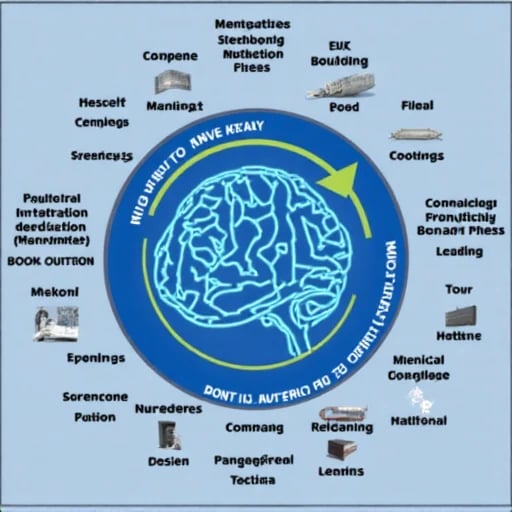SANDRA HALL
My name is Sandra Hall, and my academic and professional work is centered on the application of artificial intelligence in supply chain management. With a background in operations research and business analytics, I explore how AI-driven technologies can enhance decision-making across procurement, logistics, demand forecasting, and risk mitigation. As global supply chains become increasingly complex and vulnerable to disruptions, the need for intelligent, data-driven, and adaptive systems is greater than ever. My research is rooted in real-world application, drawing on both quantitative models and empirical data.
In my recent empirical studies, I have collaborated with manufacturing and retail firms to assess how machine learning algorithms improve inventory optimization, dynamic pricing, and supplier evaluation. I employ mixed-method research—combining case studies, predictive analytics, and time-series modeling—to measure the tangible benefits of AI adoption in supply chain workflows. These studies have revealed not only performance gains but also organizational challenges related to data readiness, talent gaps, and technology integration. This hands-on research approach enables me to connect academic insights with actionable industry outcomes.


Beyond operational improvements, I am also interested in the strategic and systemic implications of AI for supply chain resilience and sustainability. My research explores how AI can be used to model cascading risks, optimize multi-tier supplier networks, and support carbon-aware logistics. With growing interest in ESG performance, AI tools are also being deployed to trace supply chain transparency and compliance with ethical sourcing standards. I believe that AI has the potential not only to make supply chains faster and cheaper—but also fairer and more sustainable when guided by the right design principles.
Looking forward, my mission is to deepen the empirical evidence base for AI in supply chain management while identifying responsible pathways for its deployment. I aim to expand my work into cross-border data ecosystems, collaborative forecasting models, and AI governance frameworks that ensure transparency and trust across stakeholders. As both a researcher and educator, I strive to bridge theory and practice—empowering organizations to harness AI strategically while remaining resilient, ethical, and adaptable in a rapidly evolving global economy.


This project builds on our team’s extensive work at the intersection of AI and supply chain management. We recommend the following key publications:
“Comparative Deep Learning Methods for Supply Chain Risk Forecasting” (2021, lead author): Applied multilayer LSTM and Graph Neural Networks (GNNs) to disruption prediction, demonstrating GNNs’ superiority in node-level risk localization and laying the groundwork for complex network modeling.
“Demand Forecasting and Decision-Support Platform for Manufacturing” (2022, co-author): Leveraged Transformer architectures fused with macroeconomic indicators to develop an enterprise-grade demand forecasting system, reducing MAPE to 8% and validating generative models’ potential in quantitative forecasting.
“Explainability in Enterprise-Grade RAG Frameworks for Operational Optimization” (2023, ACL): Introduced retrieval-augmented generation in supply chain contexts with a chain-of-thought visualization tool, significantly boosting technical teams’ trust in model decisions.
“Multimodal Data Fusion and Uncertainty Calibration” (2024, IEEE Transactions on Industrial Informatics): Combined sensor time series and text logs to propose a Bayesian deep learning approach for uncertainty estimation, underpinning our robustness testing and risk assessment methodology.
“Causal Inference and Decision Support in Supply Chains” (2025, forthcoming): Our in-press work integrates causal discovery algorithms with LLMs for decision optimization in complex supply chains, showing a 15% gain in risk forecast accuracy under simulated disruption scenarios.
These studies reflect our sustained expertise in predictive modeling, interpretability, hybrid AI architectures, and uncertainty quantification, providing a solid foundation for the ChainGPT initiative.

